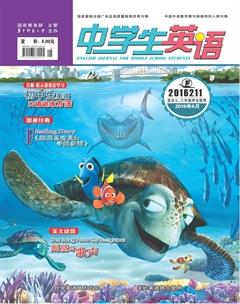新目标英语七年级(下)Unit 11知识要点归纳
一、 重点词汇
milk v. 挤奶
cow n. 奶牛
horse n. 马 feed v. 喂养;饲养
farmer n. 农民;农场主
grow v. 种植;生长;发育
farm n. 农场 v. 务农;种田
pick v. 采;摘
excellent adj. 极好的;优秀的
countryside n. 乡村;农村
yesterday adv. 昨天 flower n. 花
worry v. & n. 担心;担忧
luckily adv. 幸运地;好运地
sun n. 太阳 museum n. 博物馆
fire n. 火;火灾 painting n. 油画;绘画
exciting adj. 使人兴奋的
lovely adj. 可爱的
expensive adj. 昂贵的
cheap adj. 便宜的;廉价的
slow adj. 缓慢的;迟缓的
fast adj. & adv. 快的(地)
robot n. 机器人 guide n. 导游;向导
gift n. 礼物;赠品 interested adj. 感兴趣的
dark adj. 黑暗的;昏暗的
hear v. 听到;听见
二、重点词组
go for a walk 去散步
milk a cow 为奶牛挤奶
ride a horse 骑马
feed chickens 喂鸡
talk with... 与……交谈
take photos 照相
show sb. around... 带领某人参观……
last week 上周
in the countryside 在乡下
go fishing 去钓鱼
at night 在夜晚
the school trip 学校旅游
fire station 消防站
be interested in... 对……感兴趣
三、重点难点分析
1. It was so much fun. 那真好玩。
fun在此句中是名词,意为“有趣的事”,不可数。
例如:
The children are having so much fun. 孩子们玩得多么开心啊。
2. The rooms were really dark and it was difficult to take photos, so I didnt take any. 这些房间真的很暗,不容易拍照,所以我没有拍到照片。
it is adj. for sb. to do sth. 意为“对某人而言做某事是……的”
例如:
Its difficult for him to deal with the problem. 对他来说解决这个问题很难。
四、语法讲解
一般过去时态(上)
1. 一般过去时指的是过去某一时间发生的动作或存在的状态。常和表示过去的时间的状语连用。
2. 构成可以分为两类:一类是以be动词作谓语的一般过去时,二是以实义动词作谓语的一般过去时。
以be动词作谓语的一般过去时:
(1) is/ am→was 否定:was not (wasnt)
(2) are→were 否定:were not (werent)
(3) 一般过去式的一般疑问句要把was或were调到句首。
例如:
Were you at home yesterday?
特殊疑问句的结构为:特殊疑问词 + was/ were + 主语 + 其他
例如:
How was your life in Beijing? 你在北京的生活怎么样?

